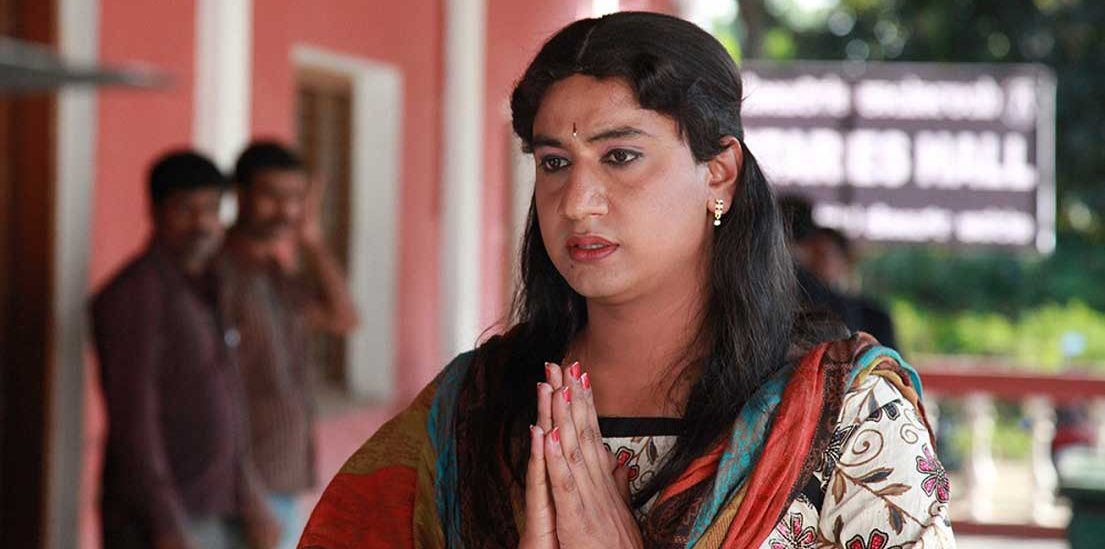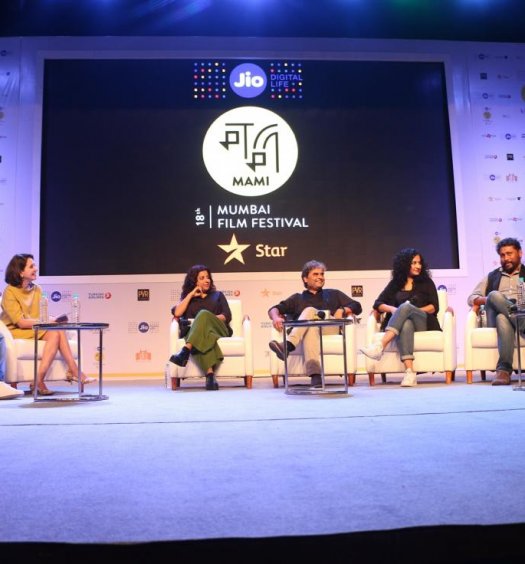Kashish Film Festival 2016: ‘7 Shades of Love’ In One Stroke
Inaugurated by thespian Sir Ian McKellen clad in a shirt declaring ‘Some people are gay. Get over it!’, the seventh edition of Kashish Mumbai International Film Festival raised curtains on quite a memorable note. This year’s theme ‘7 Shades of Love’ lay the foundation for an edition that screened some significant films and fostered important dialogue.

Sir Ian Mckellen and Sonam Kapoor at Kashish Film Festival
Joined by Sonam Kapoor on May 25th in kicking off South Asia’s biggest film festival supporting equal rights for the LGBTQ (lesbian, gay, bisexual, transgender, queer) community, the openly gay, British actor urged India to leave behind its colonial past and to join the rest of the world in simply being ‘prepared to accept that we are all born equal’.
The buzz surrounding the festival was evident with the turnout of eager festival-goers, convening amiably over glasses of chai during movie breaks to discuss (read: rip apart) their latest watch. What’s incredible is how the vision of the festival director Sridhar Rangayan has evolved over the years, as has the repertoire of the festival.
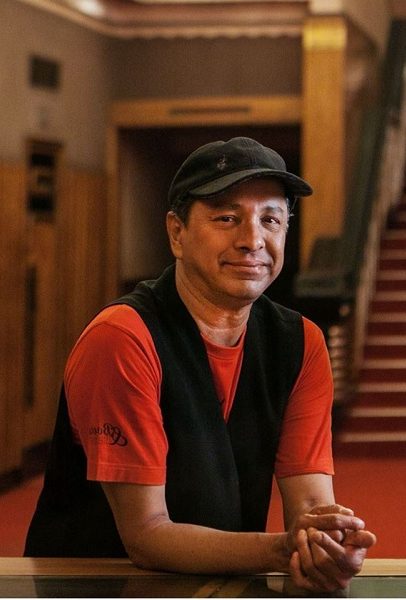
Sridhar Rangayan. Source:mumbaiqueerfest.com
“I strongly believe that more than legal and political change, it is important to enable social change first, and the most impactful way is to use films, art and culture to create awareness and sensitize people,” said Sridhar Rangayan.
An Inclusive Potpourri Of Films
A whopping 182 films from 53 countries graced screens across the venues at Liberty, Max Mueller Bhavan and Alliance Francaise de Bombay, with 27 among these from India.
Around 50 of these films screened dealt with women’s and trans (F to M) sexualities and identities, with the opening film, Cate Blanchett-starrer ‘Carol’, exploring the unexpected romance of two women in 1950’s New York.
What is uncanny about the selections at the festival this year is the growing attention to nuanced filmmaking, spanning cultural and geographical boundaries; films being screened tackled complex subjects surrounding alternate sexualities including familial relationships, early stirrings of sexuality in childhood and hate crimes on the basis of orientation.
The Marathi film Daaravtha (‘The Threshold’) — which won the National Award for Best Debut (short film) — explored the life of a young boy brought up in a patriarchal environment and coming to terms with his sexuality in a delicate feat of sensitivity, while B.S. Lingadevaru’s Kannada film ‘I Am Not A He, But A She…’ manages to touch upon the various defining aspects and socio-cultural challenges of a transgender woman who is educated, and wishes to lead a dignified life.
Another Marathi film worthy of note (and likely to make your heart ache) is ‘Koti, the story of which depicts a transgender youth in rural India, caught at the crossroads of gender identity and familial love.
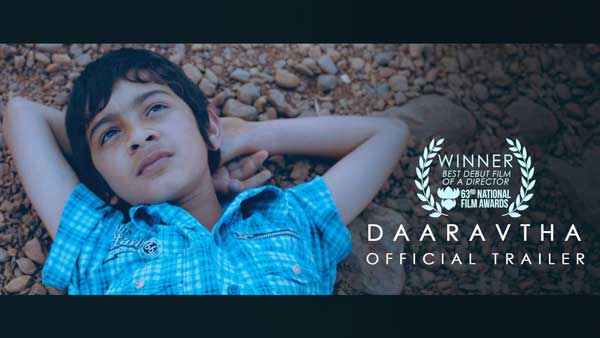
A still from the Marathi film Daaravtha (‘The Threshold’). Source: Youtube
These Indian films also, I believe, sensitively but accurately portrayed the cultural context that we could relate to, thus helping us better understand the journeys of the characters.
The India-Brazil Connection
The country of focus at Kashish this year was Brazil, a country that hosts the world’s largest gay pride parade in Sao Paolo but still suffers from growing homophobic violence — a strange dichotomy that a country like ours (with its fair share of oxymorons) is no stranger to.
“Two emerging democracies, each with their different challenges to the full enjoyment of civil and human rights by the LGBTIQ community are coming together in a very meaningful way,” said Hugo Lorenzetti, Secretary – Cultural Section & Press, Embassy of Brazil in New Delhi. “LGBTIQ oriented film festivals create safe and fun environments where we can gather to make new friends and to talk about common issues and communicate to the outside world our very existence, claiming visibility and dignity to ourselves as individuals and to our community.”
The power-packed showcase consisted of 11 diverse films, ranging from Bruno barret’s tearjerker ‘Reaching for the Moon’, a tragic love story between American poet Elizabeth Bishop and a Brazilian architect to Fabiano De Souza’s ‘Two Girls Descending The Stairs’ navigating two women’s ‘nine seasons of love’ set in the backdrop of the city. The documentary ‘My Name Is Jacque’ traced the story of Brazilian transsexual woman Jacqueline Rocha Cortes, who has been living with AIDS for 21 out of her 55 years.
Bringing Dialogue to The Forefront
Panel discussions assumed a new importance at Kashish this year, with the panelists moving out of the theatre’s foyer area to ensure that ‘discussions no longer remain side-staged and the events at the fesival included advocacy along with screening entertainment films’.
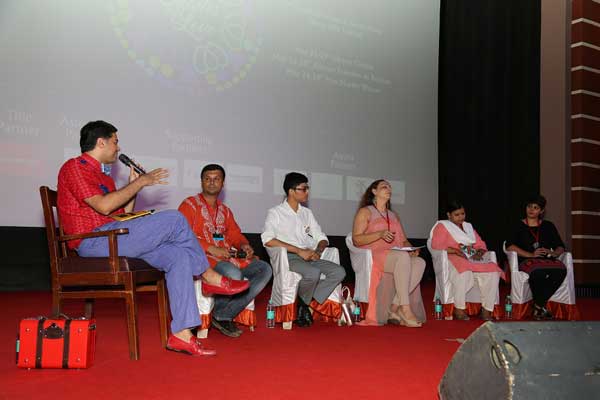
A glimpse of the panel discussion on Section 377. Source: mumbaiqueerfest.com
Taking centre-stage were discussions on ‘The Way Ahead With Section 377’, ‘Cinema & Censorship’ and ‘Crowdfunding and Independent Cinema in India’.
For the first panel discussion, activists Sonal Giani, Harish Iyer, Udayan Dhar of Godrej Industries, lawyer Vandana Shah and Chitra Batham from the Congress party came together in an insightful conversation moderated by Parmesh Shahani, Head of Godrej India Culture Lab. The highlights included tracing the journey of the law in Court (by Ms. Shah) and a clear call in conclusion to lobby with larger numbers in support of the bill, when taken up in parliament, for the removal of Section 377, which criminalises anal sex as an ‘unnatural’ offence.
‘Cinema & Censorship’ had energy levels of a completely different kind, with the powerhouse of panelists including heavyweights Nandita Das (filmmaker of Fire), Apurva Asrani (writer and editor of Aligarh), and Onir (of ‘I Am’). From the release of Fire almost two decades ago, to Aligarh, which showed at Kashish this year, this was a panel that — through their individual anecdotes and challenges of working on their films — weaved a chronological tapestry for the equal rights movement in Indian cinema.
If there’s one thing Kashish has consistently delivered, it’s ‘the number of lives the films touch, both at the festival and throughout the year’. This year, we got us some amazing storytelling along with some riveting discussions by filmmakers thrown in.
Suffice to say, the movement for equal rights for LGBTIQ individuals is one that is only going from strength to strength, fostered and celebrated by festivals like Kashish through the transportive power of cinema.
Disclaimer: The opinions expressed within this POV/BLOG are the personal opinions of the author. PANDOLIN is not responsible for the accuracy, completeness, suitability, or validity of any information on this blog. All information is provided on an as-is basis. The information, facts or opinions appearing on the POV/BLOG do not reflect the views of PANDOLIN and PANDOLIN does not assume any responsibility or liability for the same.

